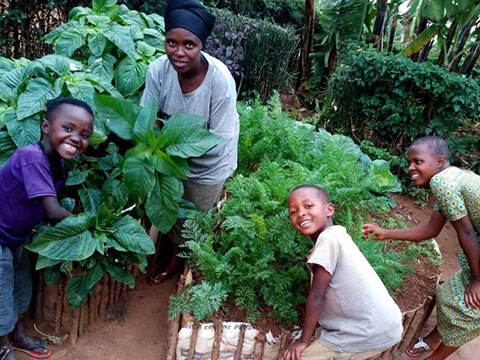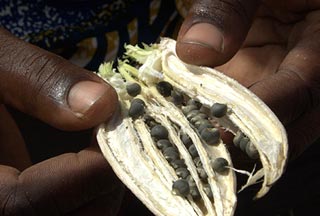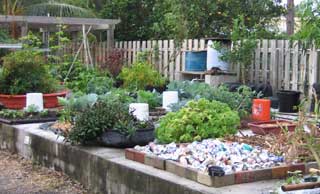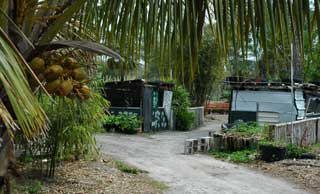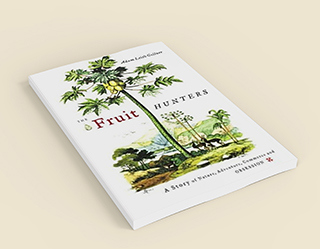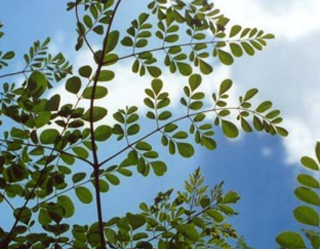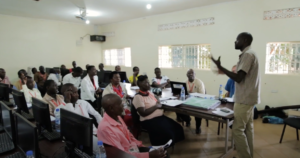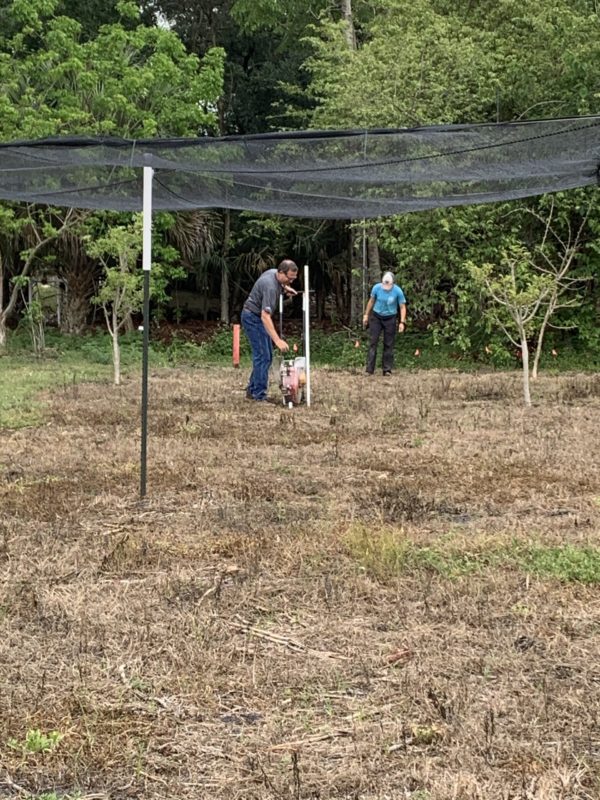A research trial led by ECHO’s Agriculture Technical and Research Director Dr. Tim Motis and Research and Publications Associate Stacy Swartz.
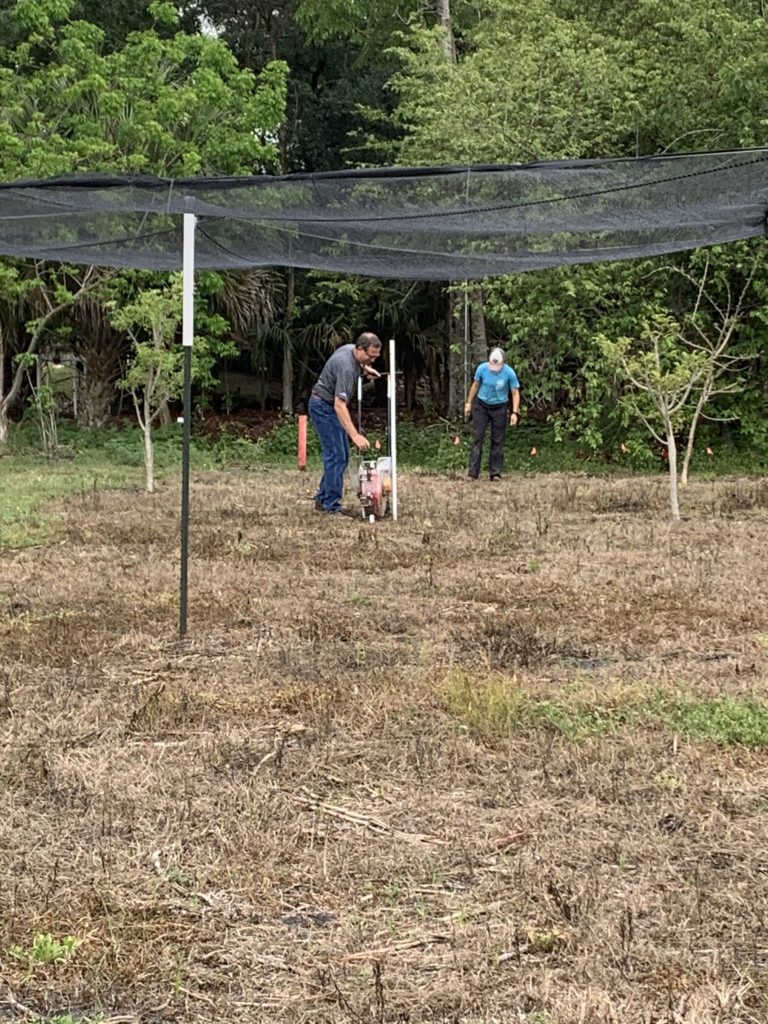
This research addresses drought and is directed primarily to parts of West Africa. High temperatures and intense sun leads to loss of soil moisture as water evaporates from the soil. Widely-spaced trees provide a little bit of shade, keeping the ground cooler, while prunings and leaves that fall reduce water loss by helping to keep the soil covered. Too much shade, though, lowers crop yields. In our experiment, we are growing a mix of maize and cowpea underneath gliricidia, shade cloth, and no shade. Gliricidia shades the ground intermittently, depending on the width of the tree canopy and the angle of the sun. Shade cloth is being used to compare intermittent shade to constant shade.
Intercropping with gliricidia also helps farmers maintain the fertility of their soils. Traditionally, farmers have often practiced fallowing, in which a portion of crop land is allowed to rest. Rising populations, however, puts more and more pressure on farmers to produce food on the same ground year after year. Unless nutrients are returned to the soil, minerals withdrawn by continuous cropping leads to nutrient-poor soils and declining crop yields. With limited cash for purchasing fertilizer, and often not enough manure or mulch to make a difference, farmers struggle to maintain their soils.
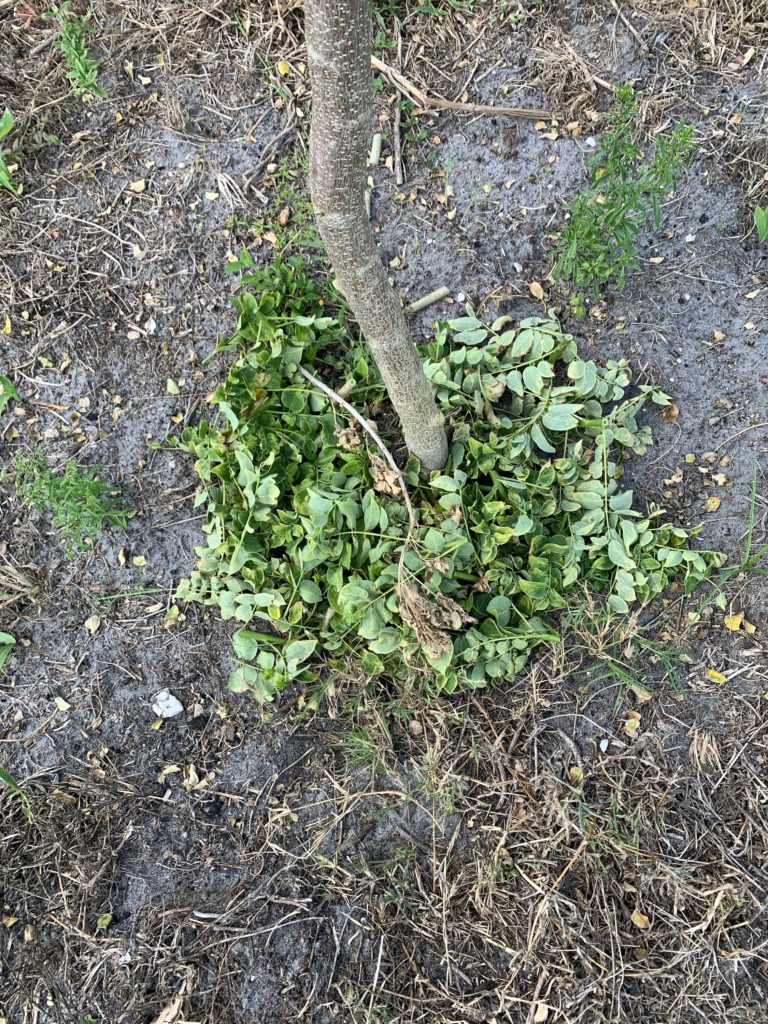
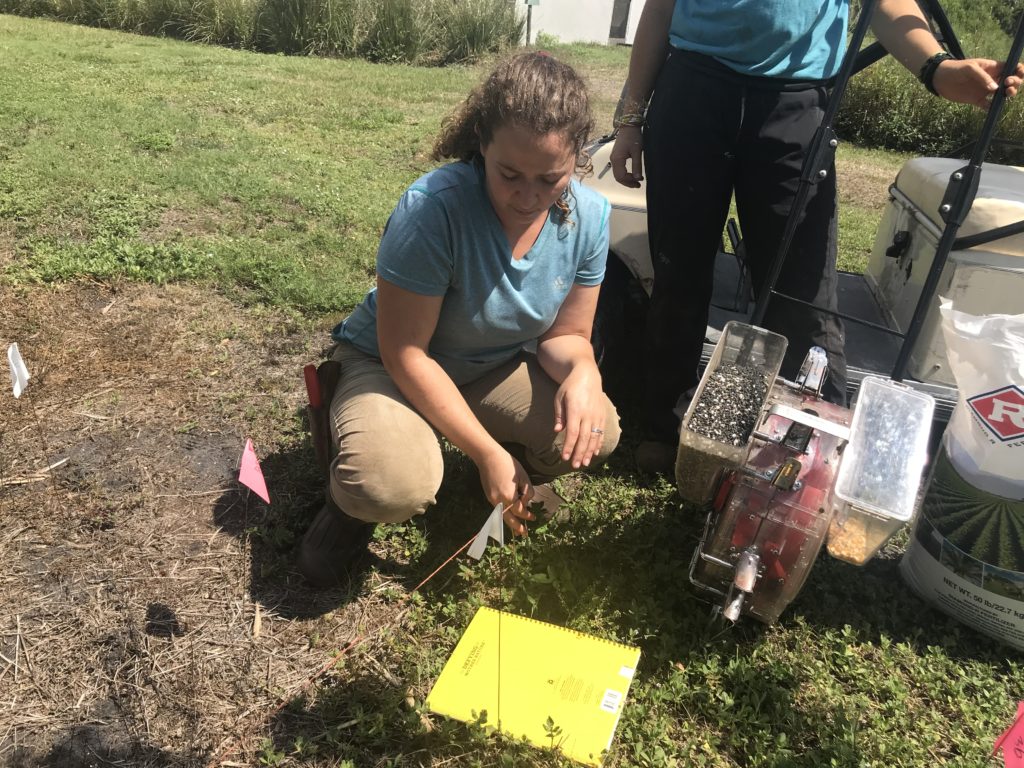
This is the reasoning for intercropping grain crops like maize with legumes like cowpea. Legumes can actually put nitrogen back into the soil, converting nitrogen in the atmosphere to forms that plants can use. In this trial, gliricidia is added to the mixture of crops. Gliricidia is a leguminous tree that, like cowpea, adds nitrogen to the soil. Gliricidia has been described by Roland Bunch as an excellent “fertilizer tree.” As its branches are pruned, the sticks provide a source of fuel for cooking while the leaves add organic matter to the soil.
This research also relates to climate change. Trees lock up carbon, reducing the amount in the atmosphere. We are starting our second year of this multi-year trial. In year one, we found that maize yield was just as high with gliricidia as it was with no shade, indicating that it is possible to include gliricidia without hurting maize production. This year, we will be able to see if that trend continues with more established trees.
__
ECHO provides sustainable options to world hunger through agricultural training, innovative options, and networking with community leaders and missionaries in 180 countries and online through ECHOcommunity.org. ECHO seeks to find agricultural solutions for families growing food under difficult conditions. ECHO’s international headquarters is located in Fort Myers, FL. Visit echonet.org

